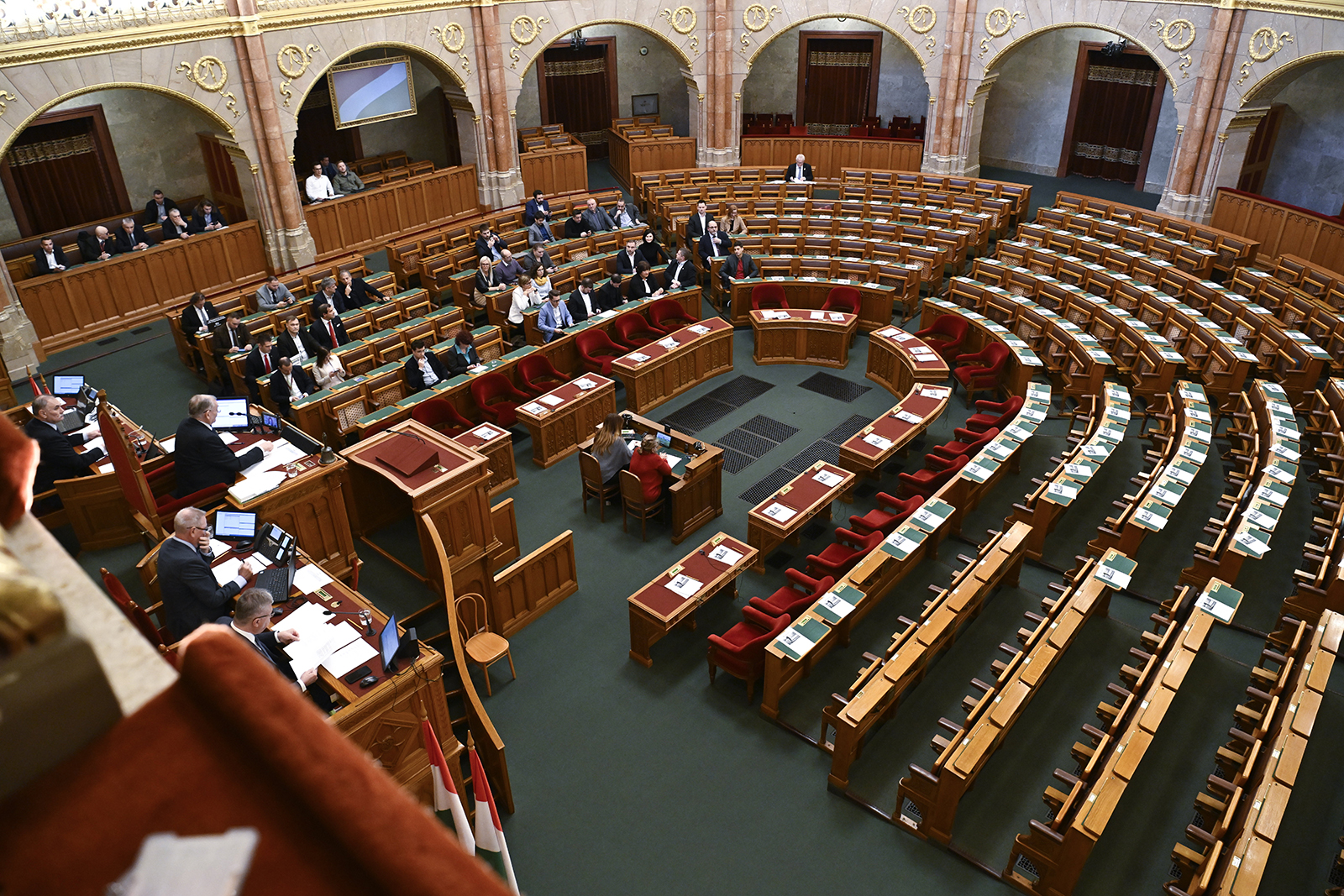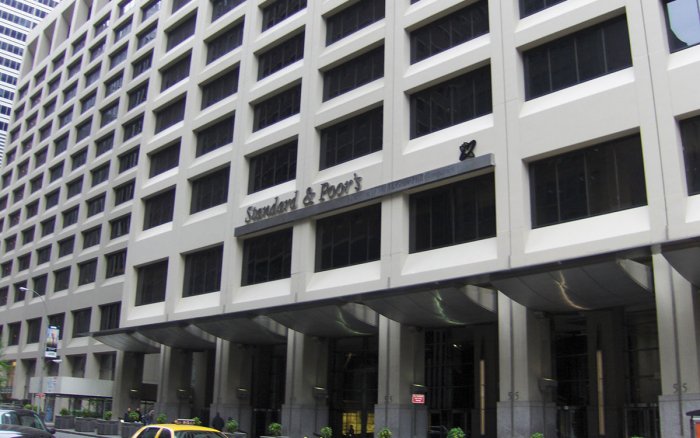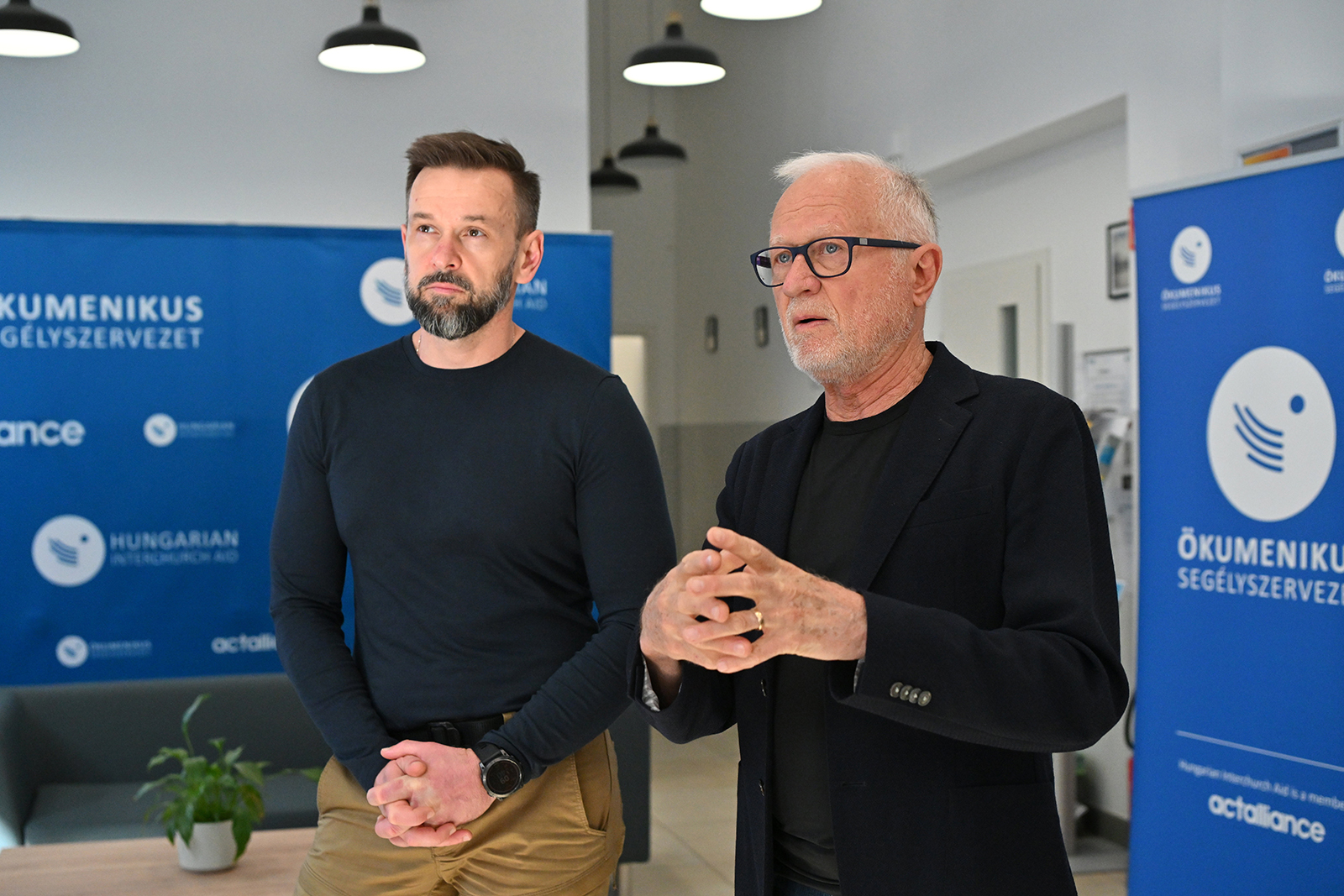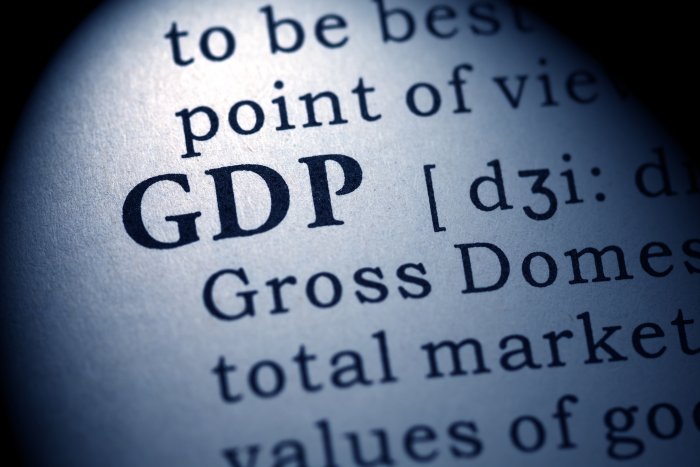Progress on Ukraine, Frustration over Sweden

The Extraordinary Plenary Session of Parliament on Feb. 5, 2024. The session, which was initiated by the opposition on the ratification of Sweden's accession to NATO, was inquorate. In addition to the government parties, members of several opposition parties - DK, Momentum, MSZP, Dialogue, LMP - and one independent MEP were also absent.
Photo by Szilárd Koszticsák / MTI.
Hungary finally allowed the passage of EUR 50 billion in European Union support for Ukraine at the latest EU summit on Feb. 1-2, following the revelation of a document in which EU officials threatened to target Hungary’s economy if the country’s leadership persisted with its obstruction.
According to the confidential document which was leaked to the U.K. daily newspaper Financial Times, Brussels had outlined a strategy of sabotage that would exploit “Hungary’s economic weaknesses, imperil its currency and drive a collapse in investor confidence” unless Viktor Orbán joined the consensus on supporting Ukraine at the summit.
If he continued to resist, EU leaders were instructed to “publicly vow to permanently shut off all EU funding to Budapest with the intention of spooking the markets, precipitating a run on the country’s forint currency and a surge in the cost of its borrowing,” the Financial Times reported. “This is Europe telling Viktor Orbán, ‘Enough is enough; it’s time to get in line,’” said Mujtaba Rahman, Europe director at consultancy Eurasia Group. “‘You may have a pistol, but we have the bazooka.’”
In the days following the report, Orbán told French weekly Le Point that Hungary would be prepared to support the Ukraine Facility if it was separated into four tranches that could be disbursed following annual approval. However, facing a united front of EU leaders (notably including ideological ally Italian Prime Minister Giorgia Meloni) who all warned of potential consequences, including economic sabotage and the invocation of Article 7 of the EU Treaty to revoke Hungary’s voting rights, Orbán was forced to accede.
Under Pressure
Under such pervasive pressure, Orbán relinquished key demands, such as insisting that the four-year package not be part of the EU’s collective budget and require annual approval. While the deal includes a yearly discussion of the package and the option to review it in two years “if needed,” it neglected to provide an outright veto for Hungary. Orbán also received no assurances that the EU would release any funds that had been frozen due to concerns over democratic standards and the rule of law in Hungary, which the bloc had done before the summit in December to solicit the Hungarian premier’s cooperation.
He, however, claimed victory by declaring that none of the money would go to weapons for Ukraine. “It is not a financial fund for weapons,” Orbán told Kossuth Rádió on Feb. 2. “It will be used to prevent the Ukrainian state, on the verge of default, from collapsing,” he said.
Hungary is now under further international pressure to approve Sweden’s bid to join NATO; it remains the only country yet to provide assent following ratification by Turkey’s parliament. Calling Orbán the “least reliable” NATO ally for his delay of the process, U.S. Senator Ben Cardin, the Democratic chairman of the Foreign Relations Committee, said the White House should consider sanctions against Hungary and possibly remove it from the visa-waiver program.
Meanwhile, the Hungarian opposition called an extraordinary meeting of Parliament on Feb. 5 to vote on the ratification of Sweden’s bid, which was attended by U.S. Ambassador David Pressman, along with representatives from 15 other NATO allies, including Poland, Denmark and Slovakia. However, lawmakers from the ruling Fidesz party boycotted the session, insisting that Swedish Prime Minister Ulf Kristersson visit Budapest before they ratify the bid. (The party has a two-thirds majority, and without its MPs in attendance, the meeting did not achieve a quorum; thus, no meaningful vote could be passed.) Pressman said afterward that Sweden’s NATO accession directly affects the United States’ national security and that of the alliance as a whole, including Hungary.
This article was first published in the Budapest Business Journal print issue of February 9, 2024.
SUPPORT THE BUDAPEST BUSINESS JOURNAL
Producing journalism that is worthy of the name is a costly business. For 27 years, the publishers, editors and reporters of the Budapest Business Journal have striven to bring you business news that works, information that you can trust, that is factual, accurate and presented without fear or favor.
Newspaper organizations across the globe have struggled to find a business model that allows them to continue to excel, without compromising their ability to perform. Most recently, some have experimented with the idea of involving their most important stakeholders, their readers.
We would like to offer that same opportunity to our readers. We would like to invite you to help us deliver the quality business journalism you require. Hit our Support the BBJ button and you can choose the how much and how often you send us your contributions.











